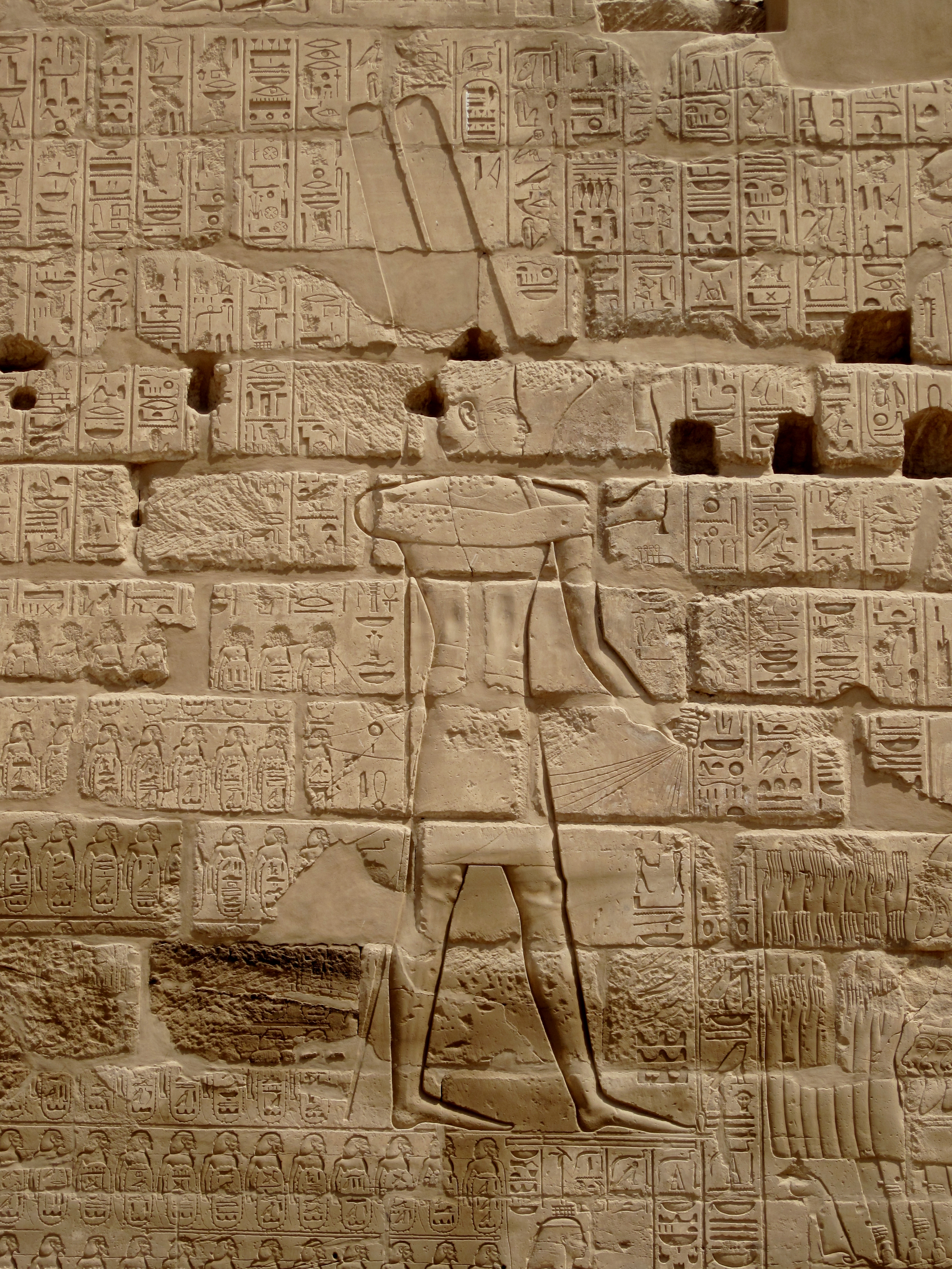Then in a span of about five years—from ca. 931 to ca. 925—Solomon's son Rehoboam presided over the contraction of the dominion of the House of David from a Levantine empire to a tiny (though wealthy) tributary of Egypt. The Davidic monarch went from emperor to client-king almost overnight.
Conquest list of Pharaoh Shoshenq I (Shishak) (credit Olaf Tausch)
You can read about how this happened in 1 Kings 11:1-12:24; 14:21-31 and 2 Chronicles 10-12. Here are some lessons derived from it about how and why decline from supremacy happens. Apply to your church, organization, or nation as they pertain:
- Decline begins while things are greater than ever—especially as to quantifiable measurables—but cracks in the edifice are beginning to show.
- Decline follows unresolved (possibly smothered) internal strife over the stresses put on people to resource greatness.
- Related strife comes from the inequitable sharing of the benefits of greatness—i.e., the concentration of privileges and resources in the tightening circle of those connected to power, into which others cannot break. (Note: Those in the circle are typically oblivious that there even is a circle and even more so about the arbitrariness of their privileges.)
- Decline also follows compromise of the reason (purpose) that brought about greatness—the uniqueness, the mission—so that greatness becomes the end unto itself and does not serve anything outside itself.
- Greatness brought about by God for his long-range purpose is forfeited when people cease to be humble and obedient and in awe of God alone.
